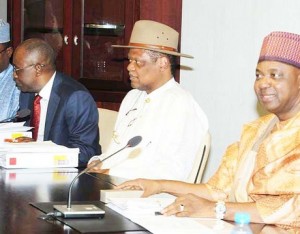Benin Disco: Southern Consortium Accuses BPE of Rigging, Denies Breaching Privatization Rules
One of the competitors for the Benin Electricity Distribution Company (BEDC) , the Southern Electricity Distribution Company (SEDC) has denied claims that it violated the investment schedule guidelines for the Request for Proposals (RFPs) provided by the Bureau of Public Enterprises (BPE) to all bidders and further accused the BPE of Rigging the process.
The company explained that it presented one technical and commercial bid, however with two circumstances laying out different capital investment plans, in compliance with the RFP.
On the contrary, the Chairman, Technical Committee of the National Council on Privatisation (NCP), Mr. Atedo Peterside, had accused SEDC of submitting multiple commercial bids for the same Disco, which he said is in clear violation of the RFPs. The Chairman stated this at a press briefing in Lagos on Monday.
In response to the allegation by the Governors, Peterside noted that close to 90 per cent of the seven members of the Southern consortium owned by private sector companies are not owned directly or indirectly by the governments of Delta, Edo, Ekiti, and Ondo States.
The three Governors described the process as “highly fraudulent, not transparent and representing some racketeering interest.”
In response to the allegation presented by BPE, the Southern Consortium stressed that at no time did the consortium submit two different bids, in a statement signed by the General Manager, IMS Ltd, Mr. Sayo Akintola, the SEDC presented one technical and commercial bid, but with two scenarios laying out varied capital investment schedules.
He clarified that the circumstances were obviously laid out in the executive summary, with additional details on pages 52 and 53 of its technical bid (business plan), adding that the technical bid, which was cautiously studied and appraised by the BPE was pronounced first, with a score of 898, devoid of any complaints.
Akintola explained that scenario one, was deemed the CAPEX to be the same as in the NERC MYTO, which is even year-on-year for the five years, while Scenario two, named FAST TRACK, and was projected as a substitute.
“In this model the total CAPEX is still the same as in MYTO, but we offered to inject more capital in the first two years, keeping the total five year CAPEX the same as allowed by MYTO,” he said.
While resolute that it abided by the laid down regulations in the privatisation process, the company, added that the second scenario, as stated in its offer, would permit it to invest more on supporting the network in the first two years and thus allow us lessen the ATC&C losses in the third year. While still keeping the total five-year CAPEX the same as MYTO as well as sticking to the NERC metering rollout plan.
“This alternative model, which injected more capital in the initial years, we believed, was in line with the objectives of BPE and NERC to provide optimal services and benefits to the nation, BEDC, and consumers.”
“We proposed this alternative as it would allow more effective utilisation of funds, reduce losses faster, and give more benefit to the consumer as the total injected capital in five years would be less than what MYTO had anticipated. This again reduces the need to request an increase in tariff from the regulators. The alternative proposal was subject to the approval of the regulator.”
“We are not aware of any restriction or rule in the RFP that precluded an alternative scenario and thus state unequivocally that we did not cheat or contravene the RFP rules. Instead, we proposed what we believed was a superior scenario that ultimately benefits the consumers, the company and the country, but subjective to the regulator’s approval,” SEDC explained.
In response to Peterside’s declaration that the consortium is about 90 per cent privately owned, SEDC said, “This is in line with the belief of the state governments, who each own two per cent shares in SEDC that the business will be better run by the private sector. It is also in adherence with the privatisation laws, which stipulate that the government cannot hold more than 49 per cent of the privatised entities.”
“Their decision to participate in the consortium was borne out of their desire to support the post acquisition success of the utility by collaborating actively in planning with the new managers and supporting the utility through provision of right of way, legislation against electricity theft, policing for vigilante and improvement of collections. The states and other investors, choice of the technical partners, was based on rigorous assessment of their ability to transform BEDC, as seen by continued success with similar profile of utilities and operating environment and specific experience with building and maintaining network infrastructure in the difficult terrain of BEDC territories,” it said.
SEDC also made clear that it had been in touch with BPE and NERC and had had numerous talks with them on many issues and even particularly on the issue of an optional investment schedule.
“We do commend their commitment to ensuring that the most effective approach to assessing the viability of the proposals submitted by bidders and believe that we share their values and objectives, which are to provide quality power at affordable prices to the people of our great country”, it added.
In a statement by it Head of Media, Mr. Chukwuma Nwoko, for BPE noted that SEDC came clean on the charge of submitting two bids and that going by the provisions of the RFPs that is a flout of the bidding rules.
“The BPE is at a loss as to what they have refuted in their statement,” Nwoko said.
The governors had threatened not to allow Vigeo Consortium, which emerged as the preferred bidder for the Benin Disco, operate in their domain.









